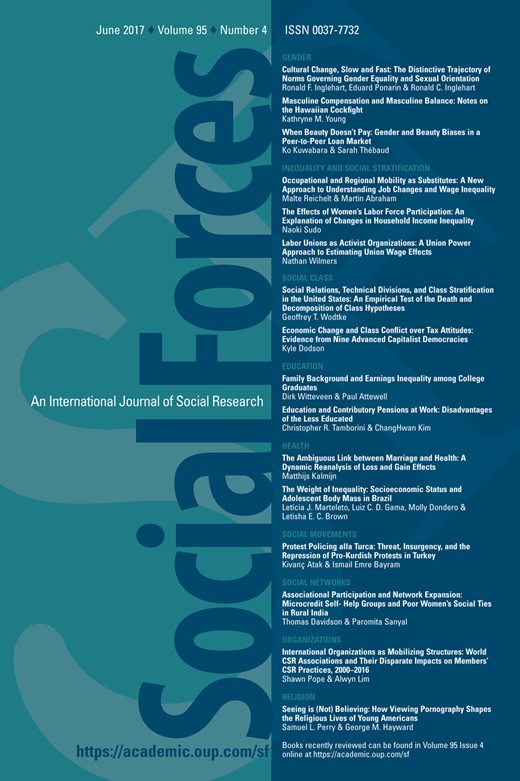-
Views
-
Cite
Cite
Kıvanç Atak, Ismail Emre Bayram, Protest Policing alla Turca: Threat, Insurgency, and the Repression of Pro-Kurdish Protests in Turkey, Social Forces, Volume 95, Issue 4, June 2017, Pages 1667–1694, https://doi.org/10.1093/sf/sox029
Close - Share Icon Share
Abstract
Why do certain protests prompt more intervention from the police? And why does the intensity of intervention vary over time? Drawing on analytical approaches in the protest policing literature, and on studies investigating the relationship between civil conflict, public opinion, and state repression, this study examines whether pro-Kurdish events in Turkey are treated more severely than others, and how the policing of these protests changes over time. Based on an original dataset, we analyze more than 10,000 protest events that took place in Turkey between 2000 and 2009. Our findings suggest that compared to others, pro-Kurdish events are more likely to encounter police action, one that particularly involves repressive strategies. We further show that repressive policing in pro-Kurdish events is more pronounced when the Kurdish armed insurgency against the state intensifies. Given that this is the first systematic quantitative study on protest policing in Turkey, it not only tests previously confirmed theories of protest policing, but also makes a theoretical contribution by providing a dynamic notion of threat beyond its situational forms, which builds on the conflict between the Turkish state and the PKK.



